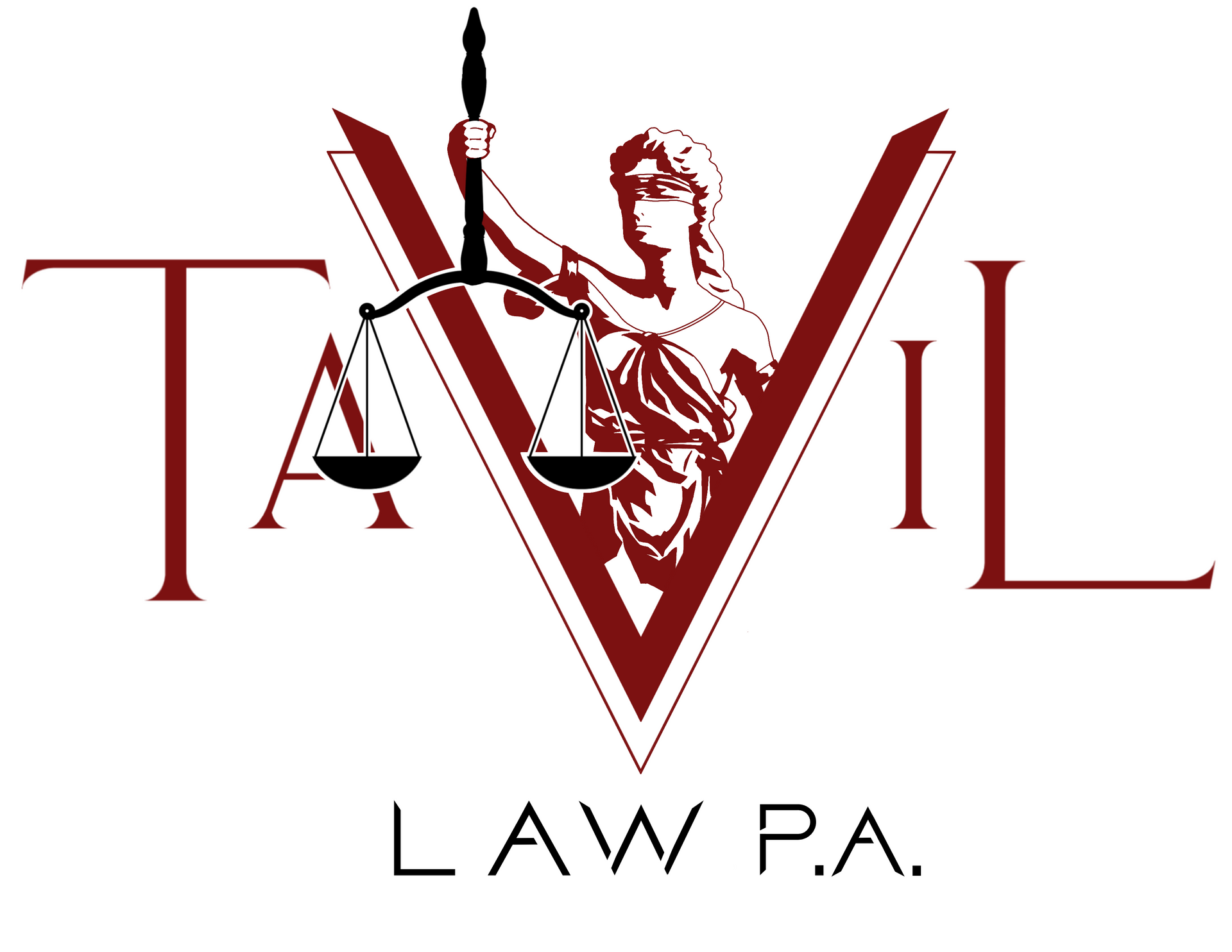Client Login
×|
ABOUT BLOG
Tavil LAW, PA News
GET THE LEGAL ASSISTANCE YOU REQUIRE AT THIS MOMENT
|
Understanding Basic DUI Law in Florida: What You Need to Know
Driving Under the Influence (DUI) is a serious offense in Florida, with strict penalties that can have lasting consequences. If you're a Florida resident or just visiting, it's crucial to understand the basics of DUI law to stay informed and avoid costly mistakes. In this blog post, we will cover what DUI means in Florida, the legal limits, penalties, and steps you can take if you find yourself facing a DUI charge.
What is DUI?
Florida Statute 316.193 - Driving Under the Influence (DUI). DUI stands for "Driving Under the Influence," and in Florida, it typically refers to driving a vehicle while impaired by alcohol, drugs, or any other substances that can affect your ability to operate a vehicle safely. The state has strict laws in place to ensure that drivers stay sober behind the wheel and that those who are impaired face consequences.
Legal Blood Alcohol Concentration (BAC) Limits
In Florida, the legal limit for Blood Alcohol Concentration (BAC) is:
- 0.08% BAC for drivers over 21 years old
- 0.02% BAC for drivers under 21 (Zero Tolerance Law)
- Any measurable amount of drugs for drivers impaired by drugs (including prescription medication, marijuana, or illegal substances)
If a law enforcement officer pulls you over and suspects you are under the influence, they may request a chemical test to measure your BAC or test for drugs. Refusing a chemical test could lead to penalties like automatic driver's license suspension, even without a conviction.
Penalties for DUI in Florida - Florida Statute 322.64 - Penalties for DUI
DUI penalties in Florida can range from fines to jail time, depending on the severity of the offense and whether it's your first or subsequent offense. Here's a breakdown of potential penalties:
- First Offense:
- Fines: $500 to $1,000
- License Suspension: 180 days to 1 year
- Imprisonment: Up to 6 months in jail
- Probation: Up to 12 months
- Community Service: 50 hours of community service may be required
- DUI School: Attendance at DUI education program
2. Second Offense:
- Fines: $1,000 to $2,000
- License Suspension: 5 years (if second offense within 5 years of the first)
- Imprisonment: Up to 9 months
- DUI School: Required
3. Third Offense:
- Fines: $2,000 to $5,000
- License Suspension: Up to 10 years
- Imprisonment: Up to 5 years in prison
- Probation: Possible probationary sentence
4. Aggravating Factors:
- Injury or Death: If the DUI results in injury or death to another person, the charges and penalties will be significantly more severe, including possible felony charges.
- BAC of 0.15% or higher: A BAC level of 0.15% or higher may result in harsher penalties, such as larger fines and mandatory imprisonment.
Florida’s Implied Consent Law - Florida Statute 316.1932 - Tests for Alcohol or Controlled Substances:
Florida operates under an "Implied Consent Law," which means that by driving in the state, you automatically consent to a chemical test if a police officer has probable cause to suspect you are under the influence. If you refuse to take the test, you will face an automatic license suspension, regardless of whether you are convicted of DUI. Florida Statute 322.2615 - Refusal to Submit to Testing
- Refusal Penalties:
- First Refusal: 1-year driver's license suspension
- Second Refusal (within 5 years): 18-month suspension
DUI Checkpoints and Enforcement
Florida law enforcement is proactive in preventing impaired driving, and DUI checkpoints are common, especially during holidays or weekends. Police officers are permitted to stop vehicles at these checkpoints without having a specific reason to suspect a driver. At a checkpoint, they will assess the driver for signs of impairment, and if they believe the driver is intoxicated, they may conduct further tests.
What to Do If You’re Arrested for DUI in Florida
If you find yourself arrested for DUI, it’s essential to know your rights and take the right steps:
- Stay Calm and Respectful: If stopped by law enforcement, always stay calm, remain polite, and provide identification when asked.
- Understand Your Rights: You have the right to remain silent and consult an attorney. If arrested, you can refuse to answer any questions except to provide your name and basic information.
- Request an Attorney: If arrested, ask for an attorney as soon as possible. Legal counsel can help you navigate the complexities of DUI law and may offer advice on challenging the evidence.
- Challenge the Charges: Florida DUI cases can be contested. There are defenses such as challenging the legality of the stop, questioning the reliability of the field sobriety tests, or challenging the chemical test results.
How to Avoid a DUI in Florida
Prevention is always better than facing legal consequences. Here are some tips to avoid getting a DUI charge in Florida:
- Designate a Driver: If you're planning to drink, make sure you have a sober driver or arrange for a ride home.
- Use Ride-Sharing Apps: Services like Uber and Lyft are a great way to avoid getting behind the wheel if you've been drinking.
- Stay Within Legal Limits: Keep track of your alcohol consumption and know your limits, especially if you're planning to drive afterward.
- Avoid Driving Under the Influence of Drugs: Even prescription medication can impair your ability to drive, so always read labels and consult your doctor.
DUI laws in Florida are strict, and the consequences of a conviction can be severe. Whether it's your first offense or you’ve been arrested before, it’s important to take DUI charges seriously and understand your rights and responsibilities. If you’re ever charged with DUI in Florida, seeking legal advice from an experienced attorney can make a significant difference in the outcome of your case.
By understanding the basics of DUI law in Florida, you can better protect yourself, your driving privileges, and the safety of others on the road. Stay informed and make responsible choices when it comes to driving under the influence. Contact Tavil Law, PA.


